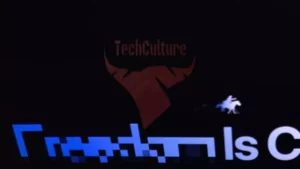In a move that raises eyebrows and ethical questions alike, Nvidia, the powerhouse behind the chips fueling artificial intelligence, has been caught quietly scraping a staggering amount of YouTube video data to train its AI models. The revelation, brought to light by leaked documents obtained by 404 Media, highlights Nvidia’s clandestine data collection, adding another layer to the already contentious debate over AI training practices.
According to 404’s investigative report, Nvidia gathered an astronomical volume of YouTube data to bolster an array of its AI initiatives. These include the Cosmos deep learning model, a self-driving car algorithm, a “Digital Human” AI avatar, and the 3D world-building tool known as Omniverse. Nvidia’s covert operations didn’t stop at mere data collection; the company went to great lengths to avoid detection. Using an array of virtual machines that frequently shifted their IP addresses, Nvidia ensured that neither individual content creators nor YouTube’s parent company, Google, were aware of the data scraping activities. This is particularly ironic, given that Google itself is a prominent Nvidia customer.
What makes the situation more egregious is that Nvidia’s actions were not just secretive but also potentially unlawful. Internal communications between Nvidia employees reveal a brazen, almost cavalier attitude towards the data scraping. In a May email, Ming-Yu Liu, Nvidia’s Vice President of Research and a leader on the Cosmos project, detailed plans to build a “video data factory” capable of producing a human lifetime’s worth of visual training data per day. Such statements underline a troubling disregard for the consent of content creators who unknowingly had their videos repurposed for commercial gain.
The ethical quagmire deepens when considering Nvidia’s use of the HD-VG-130M dataset. This dataset, comprising 130 million YouTube videos, was initially created for academic research. Nvidia’s repurposing of this academic data for commercial use is a flagrant breach of trust and raises significant ethical concerns. Nvidia’s actions reflect a broader, unsettling trend within the AI industry, where the fierce competition for dominance often tramples on ethical considerations and legal boundaries.
Nvidia’s central role in the AI industry cannot be understated. The company’s graphic processing units (GPUs) are integral to the compute-heavy demands of AI systems. Companies like OpenAI, Microsoft, Meta, and even Google rely on Nvidia’s hardware, making Nvidia’s unauthorized use of Google-owned data all the more scandalous. Nvidia has positioned itself as both a key player and a controversial figure in the AI landscape, underscoring the complex and often contradictory relationships within the tech world.
In response to the allegations, Nvidia asserted that its AI training practices comply with copyright law both in letter and spirit. However, this claim is unlikely to placate the content creators whose videos were appropriated without consent. The AI industry’s rush to advance its capabilities can sometimes lead to ethically dubious actions, and Nvidia’s recent activities highlight the need for greater transparency and accountability within the sector. The debate over the ethical use of data in AI training continues, with Nvidia now firmly at the center of the storm.





